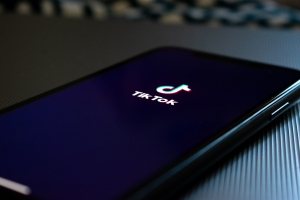Asia Banking Research
Singapore-based Arival Bank is one of the less high-profile applicants for a digital bank license in the city-state. It's easy to get lost in the crowd when you're competing against names like Ant Financial, Xiaomi and ByteDance. Arival Bank, a fintech startup, has applied for the same digital wholesale bank (DWB) license as those Chinese tech giants. In a nutshell, that license allows the holder to serve non-retail clients in Singapore. The Monetary Authority of Singapore (MAS) has said it would issue three DWB licenses.
Why is ByteDance venturing into fintech?
China's ByteDance, best known as the owner of the popular TikTok video-sharing app, is reportedly now the world's most valuable startup with a US$75 billion valuation or more. That's quite a price tag. Of course, since the valuation is occurring in private markets, it is difficult to assess its accuracy. WeWork was once worth US$47 billion too. Now the company is fighting for its survival.
To be sure, ByteDance is on firmer footing than Adam Neumann's troubled company. In the quarter ended Dec. 2019, TikTok's short-video app revenue increased 310% annually, according to research firm Apptopia. Overall, ByteDance recorded between US$7 billion and US$8.4 billion in revenue in the first half of 2019, data from Reuters show.
The Kakao Talk messenger app's financial arm became the majority shareholder of Baro Investment & Securities in February, taking a 60% stake in the brokerage. This is the type of cooperation between incumbents and fintechs that Korea's Financial Services Commission (FSC) likes to see. Kakao is focusing largely on the underserved retail segment, with an eye on financial inclusion. Kakao could likely become the definitive Korean super app if its fintech business grows large enough.
Kakao is nearly as dominant in Korea as WeChat was in China when it moved into fintech. The Kakao Talk app has about 50 million active users in a country of about 51.5 million. Kakao Pay, which is already one of Korea's largest fintech platforms, has about 30 million registered users. Kakao Bank, one of the first two neobanks launched in Korea, has about 11.3 million customers.
Pressure builds on Philippines to strengthen AML regime
The Financial Action Task Force (FATF ) told the Philippines in October to improve its anti-money laundering regime or else face the possibility of being placed on the organization's blacklist once again, an unenviable position. FATF gave Manila one year to get its house in order. The Philippines does not want to be on that blacklist: Banking sanctions could ensue that would make it harder for Filipino workers to remit money home, while foreign countries could increase due diligence checks on Philippine companies. Philippine banks might also charge higher interest rates as their own costs rise due to the tougher business environment.
“We cannot afford to have the Philippines in the FATF’s list of high risk and non-cooperative jurisdictions. Hence, we should be very strategic in our focus for the next 12 months,” Bangko Sentral ng Pilipinas Governor Benjamin Diokno said last October.
The competition for Singapore digital banking licenses is heating up as yet another fintech throws its hat into the ring. This time, the contender is homegrown fintech MatchMove which is applying for a digital full-bank (DFB) license together with Singapura Finance, the Thai blockchain startup LightNet and the London fintech startup OpenPayd. There are only two DFB licenses up for grabs. They allow licensees to conduct both retail and corporate banking. Digital wholesale bank (DWB) licenses are valid only for non-retail banking.
The United States is currently focused on fighting the coronavirus outbreak, which has surged in the country since early March. Containment efforts are occupying much of the government's time, and with good reason. The massive health and economic threat posed by the virus means that Washington has little time for less pressing matters. Yet underlying tensions between the U.S. and China remain, with the financial sector the next front of an emerging cold war.
In early March, U.S. lawmakers sought to curb the access of Chinese telecoms giant Huawei to American banks. The White House had mulled doing so in December but decided against it amidst a flurry of activity to reach a phase-one trade deal with China. The NETWORKS Act introduced earlier this month would effectively ban 5G producers such as Huawei from accessing the U.S. financial system if they are found to be violating sanctions or engaging in industrial or economic espionage.
Gaming company Razer isn't the most obvious shoo-in for one of Singapore's digital banking licenses, but has unique advantages it brings to the table. Those include a user base 80 million strong primarily composed of millennials, one of the key target demographics of neobanks. Razer established a fintech unit in 2018 to respond to the need for in-game payment. If it gets the license, Razer wants to expand its digital banking services beyond East Asia to the Middle East, Europe and North America.
Hong Kong's future as a financial center at a crossroads
Well before COVID-19 broke out, Hong Kong's future as a global financial center was in question. The protests that broke out last year have raised concerns about the city's ability to maintain its unique competitive strengths. Further erosion of political stability and the rule of law will augur ill prospects for the former British colony. In the short run, it is true that none of Hong Kong's neighbors can challenge its position as the region's preeminent financial center. But Hong Kong cannot assume that will never change.
P2P lending in South Korea faces rising backlash
Peer-to-peer lending is one of the fintech segments that most struggles to gain credibility. Next to cryptocurrency, it may be the most susceptible to scams. But it is not only borrowers who are at risk. Lenders can easily get burned when borrowers default. Since many borrowers on P2P lending platforms are those unable to get a loan elsewhere, their credit is typically not optimal.
P2P lending began growing quickly in South Korea about four years ago, offering attractive returns to investors amidst very low interest rates. Some P2P businesses began venturing into risky investments such as real estate project funds, non-performing loans and mortgages. South Korea had 239 P2P lenders in December 2019, up from just 27 four years earlier. Their outstanding loan balance totaled 2.38 trillion won.
Grab teams up with Japan's largest bank
Singaporean ride-hailing giant Grab is set upon becoming a top digital bank in Asia. Over the past year, the company has raised billions from investors in a bid to fund the transformation from app-based neo-taxi service into neobank. It has inked numerous deals with financial services incumbents and applied for one of Singapore's coveted digital full banking (DFB) licenses. If Grab's application is successful, it will be allowed to conduct both retail banking and corporate lending in Southeast Asia's financial center.
While Grab has troves of user data and digital acumen, it lacks financial industry expertise. Addressing this shortfall is crucial for the company to gain the trust of customers as a financial services provider. The segue from ride hailing to banking is not as seamless as Grab sometimes suggests. Partnering with a large commercial bank could help Grab bridge that gap, and increase its chances of securing the DFB. Japan's Mitsubishi UJF Financial Group (MUFG), which led Grab's recent US$856 million funding round, is just that type of partner.
More...
How will Covid-19 affect virtual banks?
The novel coronavirus outbreak is crimping global business as people avoid travel and even going out in public. The sharp contraction in business activity augurs ill prospects for the financial industry. Banks are not optimistic about their first quarter results. If the virus isn't contained soon, the second quarter could be even worse.
For the nascent virtual banking segment, Covid-19 is a double-edged sword. On the one hand, e-commerce demand remains strong thus far. Consumers still need to buy essential everyday items. If they are hesitant about visiting a physical store, the best option is to make the purchases online. In the short term, that means a rise in online transactions and in many cases the use of digital wallets.
Malaysia gets ready for virtual banks
Malaysia is set to introduce digital banking following the passage of a new regulatory framework by its central bank in December. The central bank said it would issue up to five licenses to qualified applicants to set up digital banks. The licenses will allow the holders to conduct either conventional or Islamic banking business in Malaysia. Capital requirements are not low, with an absolute minimum of RM 100 million (US$23.7 million) necessary during a three to five year foundational phase and thereafter RM 300 million.
Hong Kong's digital banks can't catch a break
Roughly a year ago, Hong Kong looked set to take a leading position in Asia's nascent digital banking space. In late March 2019, the Hong Kong Monetary Authority (HKMA) awarded three digital banking licenses. It later issued five additional licenses. The eight neobanks, which include consortia led by Chinese tech giants Ant Financial, Tencent and Xiaomi, were reportedly set to begin operations in the second half of 2019.
Then came the Hong Kong protests. The political turmoil that erupted in June 2019 has shaken confidence in Hong Kong's once unassailable position as the region's top global financial center. Amidst the economic fallout, Hong Kong has slipped into recession for the first time since the global financial crisis of 2008-09. Given unenviable economic conditions, all but one of Hong Kong's digital banks have postponed their launch.
Who is leading Singapore's digital banking race?
Singapore has 21 applicants for just five digital banking licenses. There are going to be many more losers than winners in this race. Speculation about the likely winners is reaching a feverish pitch ahead of the Monetary Authority of Singapore's (MAS) expected announcement of the winners. The decision is expected by June.
MAS has made clear that it has little interest in large-scale disruption of the financial-services sector. The regulator certainly wants to boost competition and the quality of digital-banking services in the city-state, but in a steady, incremental manner. Evolution is necessary. Revolution is not. With that in mind, the MAS designed the application process to ensure that only firms with ample capitalization and strong potential for profitability would meet the licensing criterion.














